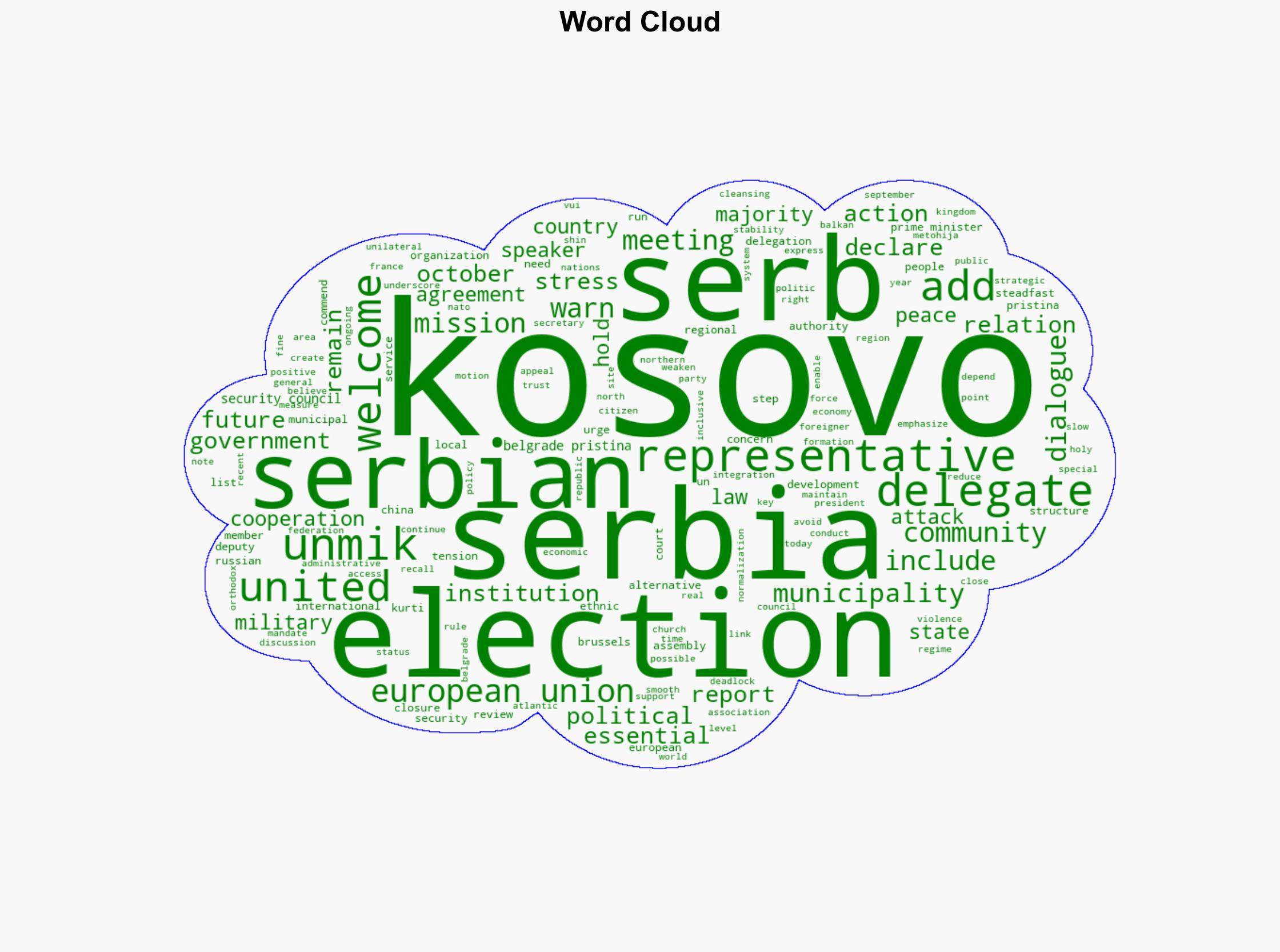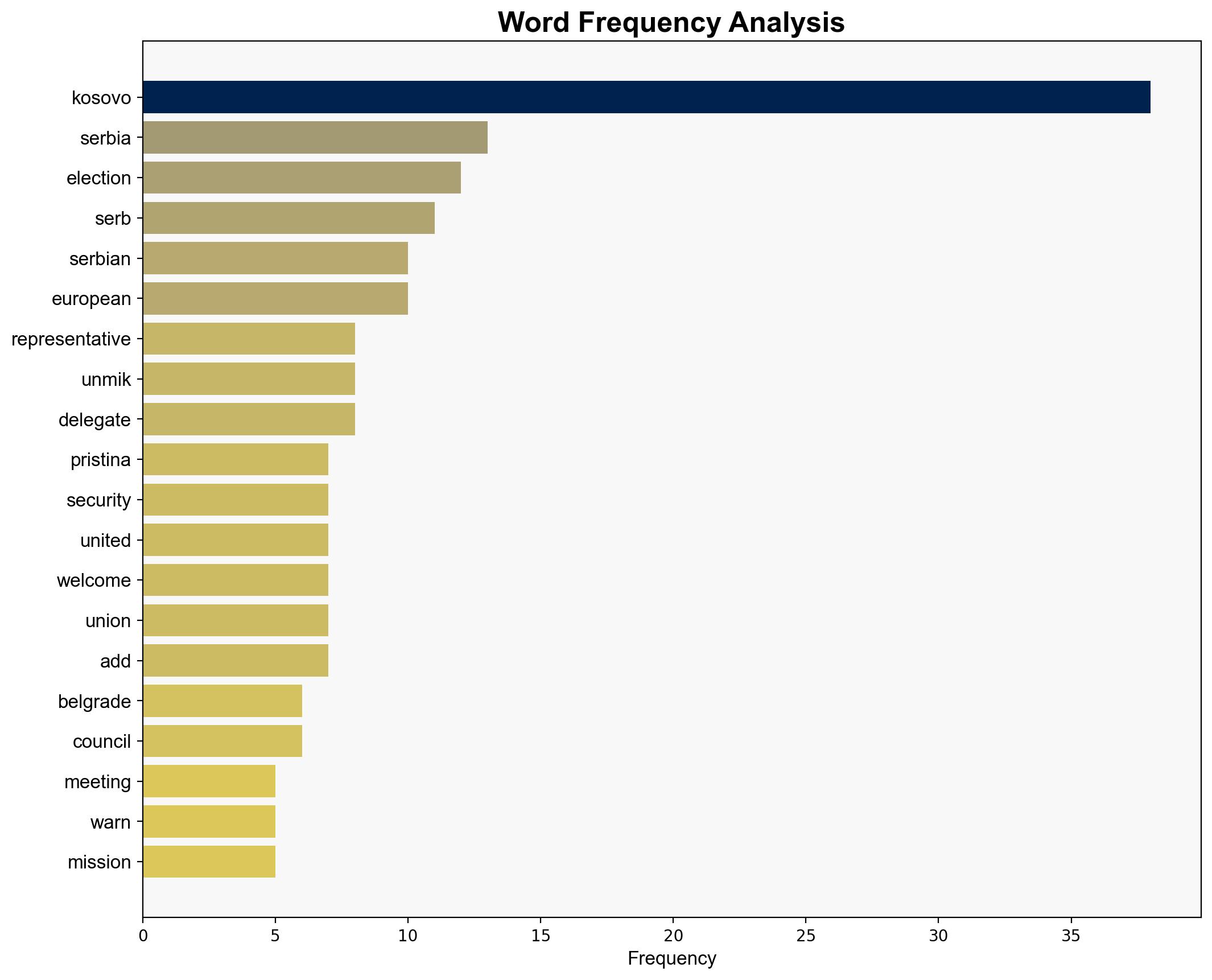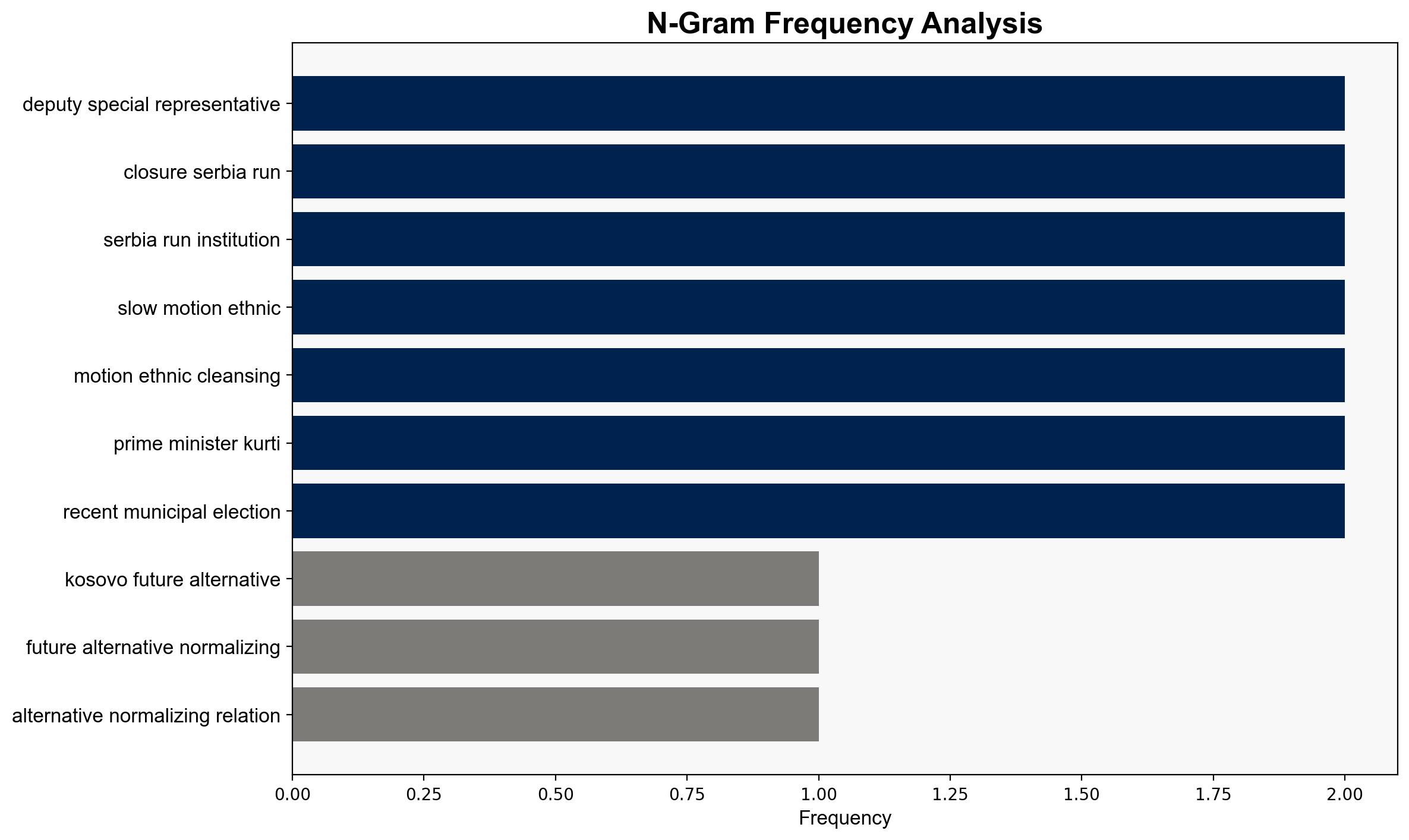For Kosovo’s Future ‘No Alternative’ to Normalizing Relations between Belgrade Pristina Deputy Special Representative Says in Security Council Briefing – Globalsecurity.org
Published on: 2025-10-22
Intelligence Report: For Kosovo’s Future ‘No Alternative’ to Normalizing Relations between Belgrade Pristina Deputy Special Representative Says in Security Council Briefing – Globalsecurity.org
1. BLUF (Bottom Line Up Front)
The most supported hypothesis is that normalization of relations between Belgrade and Pristina is crucial for regional stability and is backed by international stakeholders. However, significant obstacles persist, including political deadlock and ethnic tensions. Confidence level: Moderate. Recommended action: Intensify diplomatic efforts to facilitate dialogue and address grievances on both sides to prevent escalation.
2. Competing Hypotheses
1. **Normalization is Essential and Inevitable**: The international community, including the UN, views normalization as the only viable path to stability in the region. This hypothesis is supported by recent peaceful elections in Kosovo and ongoing dialogue efforts in Brussels.
2. **Normalization is Unlikely Due to Entrenched Hostilities**: Persistent ethnic tensions, political deadlock, and accusations of ethnic cleansing by Serbia suggest that normalization may not be feasible in the near term. This is evidenced by the closure of Serbia-run institutions and the alleged targeting of the Serbian community in Kosovo.
3. Key Assumptions and Red Flags
– **Assumptions**: The first hypothesis assumes that international pressure and dialogue will eventually overcome local resistance. The second assumes that historical grievances and current tensions are insurmountable.
– **Red Flags**: The report from Serbia’s foreign affairs minister highlights potential bias, possibly overstating ethnic cleansing claims to garner international sympathy. The lack of detailed evidence on these claims is a concern.
– **Blind Spots**: The potential influence of external actors, such as Russia or the EU, on the normalization process is not addressed.
4. Implications and Strategic Risks
– **Geopolitical Risks**: Failure to normalize relations could destabilize the Balkans, potentially drawing in neighboring countries and international actors.
– **Economic Implications**: Continued instability may deter investment and economic development in the region.
– **Psychological Impact**: Persistent tensions could exacerbate ethnic divisions, leading to further societal fragmentation.
5. Recommendations and Outlook
- **Mitigation**: Strengthen international diplomatic efforts to mediate between Belgrade and Pristina, emphasizing the benefits of normalization for both parties.
- **Opportunities**: Leverage EU integration prospects as an incentive for cooperation.
- **Scenario Projections**:
– **Best Case**: Successful normalization leads to regional stability and economic growth.
– **Worst Case**: Escalation of ethnic tensions results in violence and international intervention.
– **Most Likely**: Continued dialogue with periodic setbacks due to entrenched political and ethnic divisions.
6. Key Individuals and Entities
– Milbert Dongjoon Shin
– Albin Kurti
– Marko Đurić
7. Thematic Tags
national security threats, regional focus, ethnic tensions, diplomatic relations




